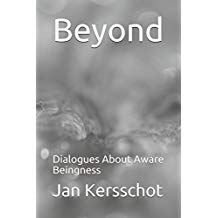Q: I’ve read your wonderful book, Back to the Truth, and much from your website. I’ve learned so much from what you’ve offered, it’s impossible to thank you enough. I do have a question that continues to arise again and again. Though simple, it’s never quite answered head-on. It’s hard to phrase it in a single sentence, so here goes:
Sometimes it seems that nondual teachers are simply saying “Did you notice you’re conscious? That’s what you are.” There are many such teachers, as I’m sure you are aware. Some, similarly, seem to say that realizing there is no person is all there is too it, everything else stays the same. Meanwhile there are many many accounts of realization that include an understanding of the nature of consciousness, of seeing he world of objects as empty or transparent, and many have said that the mark of realization is an awareness that does not go away (or seem to go away) during deep sleep. These understandings seem beyond no-self.
So when an instructor says something like “who wants to know” or “who wants enlightenment” I get very frustrated. I get it that there is no person that wants to know. Maybe I don’t get it enough (certainly not experientially), but just dropping the idea of a self and saying “yep I’m conscious, I’m aware” does not lead to these other powerful understandings, or deeper truths.
Body minds that have realized no-self still go on through life with a few desires and interests that they try to satisfy (Ramana Maharshi reading the news, for instance). This body-mind is interested in big Truths. So why tell me that seeing through the self, knowing that I am aware (or awareness) is enough? There seem to be another, bigger, even more interesting truth to be discovered.
So, I guess a simple way of asking my question is: Paradoxes rise from a illusory self seeking to see through itself. but they don’t arise from a body mind (or even an illusory self) seeking to understand oneness, consciousness, the universe, etc. I assume we have to see through the self to realize the rest, but why do so many seem to ignore the rest? Continue reading →


